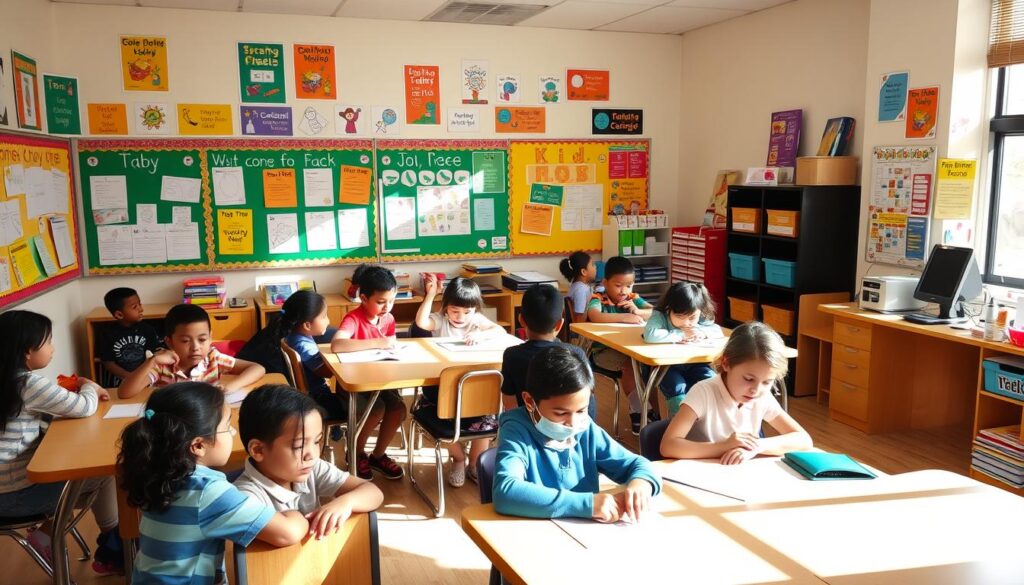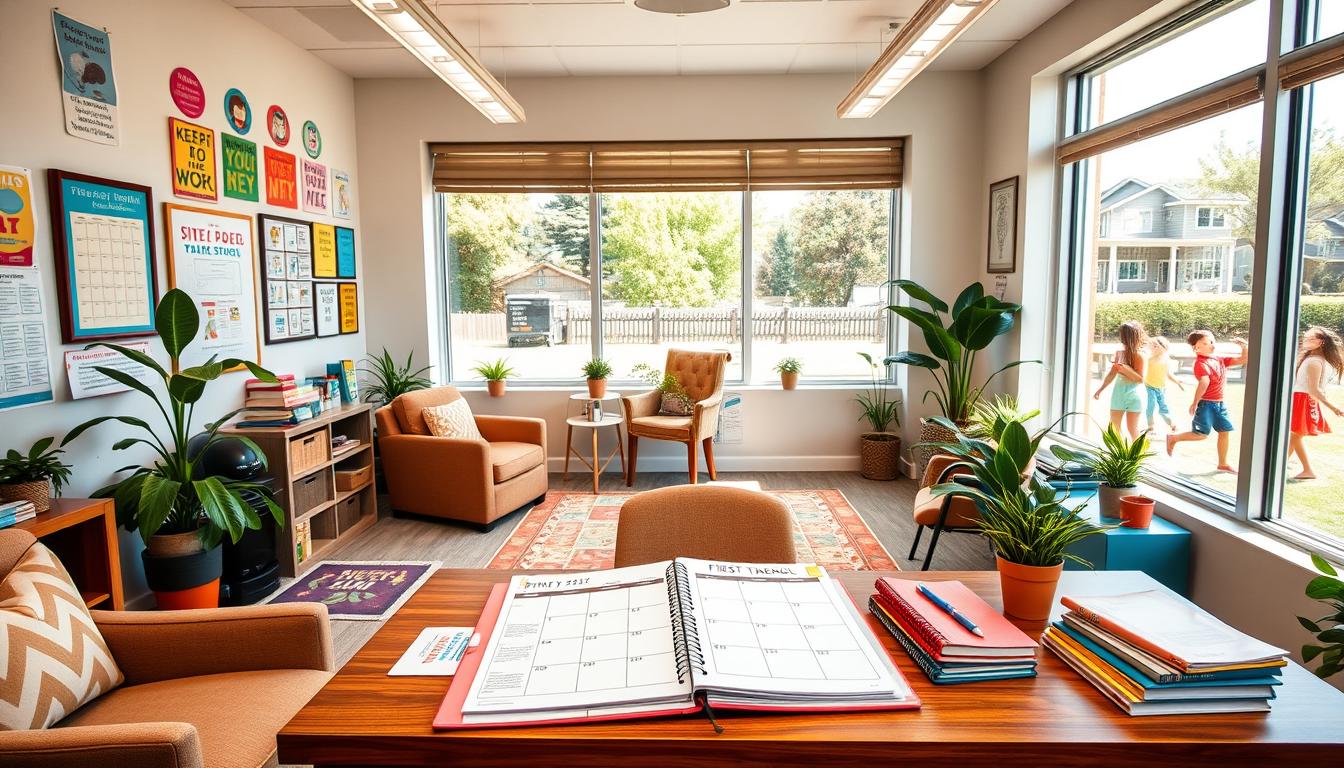As the new school year begins, school counselors, OTs, PTs, and SLPs have a big task ahead. They need to settle into their roles and build a strong foundation for the year. The first week is key, setting the tone for the semester. It’s when you start supporting students, working with teachers, and getting to know your school community.
This article offers top tips for the first week of school. These tips are for school counselors, OTs, PTs, and SLPs. By following these strategies, you can make a big impact and have a successful year. You’ll help students grow, manage classrooms well, and work better with teachers and families.
Key Takeaways
- Develop a clear understanding of school policies and procedures to streamline your work
- Establish positive relationships with students, teachers, and parents to foster collaboration
- Implement effective classroom management strategies to create a conducive learning environment
- Prioritize professional development and self-care to maintain your well-being
- Leverage technology and digital tools to enhance efficiency and engagement
Preparing for a Smooth Start
As school counselors, OTs, PTs, and SLPs, we know how crucial a smooth start to the school year is. Before classes begin, it’s key to organize your space and learn the school’s rules. These steps make you feel ready and reduce stress in the first week.
Organizing Your Workspace
Begin by making sure your workspace is tidy and has all you need. Check your supplies and get what’s missing, like pens, tests, or therapy tools. Set up your desk and storage so you can find things fast and work efficiently.
Familiarizing Yourself with School Policies
Get to know the school’s rules and how things work, including the student code and safety steps. Look at the school calendar for important dates like meetings and events. Knowing what’s expected helps you support students, parents, and colleagues with confidence.
These steps will help you start the school year well. The first week sets the pace for the whole year. So, focus on classroom management, student engagement, and parent-teacher communication from the start.
Building Rapport with Students
Creating positive relationships with students is key to their student engagement and success. In the first week, school counselors, OTs, PTs, and SLPs should get to know their students. They should understand their needs and make a welcoming space for social-emotional learning.
Icebreaker activities are a great way to connect with students. These activities are fun and let students share a bit about themselves. By learning about their interests and concerns, you can tailor your approach to their needs.
Listening to your students is also important. Take time to hear their thoughts and ideas. This shows you care about their well-being and helps you see where you can offer more support.
- Engage students in small-group discussions or one-on-one conversations to learn more about their unique circumstances and perspectives.
- Encourage students to share their goals and aspirations, and find ways to help them achieve those objectives.
- Celebrate their successes, no matter how small, to foster a positive and affirming environment.
By building strong first week of school tips for school counselors, OTs, PTs, and SLPs, you can lay a foundation of trust and respect. This leads to more effective interventions and better student outcomes.

“The first step in the acquisition of wisdom is silence, the second listening, the third memory, the fourth practice, the fifth teaching others.”
– Solomon Ibn Gabirol
Effective Classroom Management Strategies
Getting classroom management right in the first week is key for school counselors, OTs, PTs, and SLPs. It helps make a place where students can learn well. By being clear about what’s expected and using positive ways to encourage, you can get students involved and working together.
Setting Clear Expectations
Begin the year by making your expectations clear. Tell students the classroom rules, how things work, and what happens if they don’t follow them. Make sure they know the rules and what happens if they break them.
Ask students what they think about the classroom rules. This helps them feel like they have a say in how things go. It also makes them more likely to follow the rules.
Positive Reinforcement Techniques
Don’t just focus on what students do wrong. Use positive reinforcement strategies to encourage what you want to see more of. This includes:
- Verbal praise and affirmation
- Rewarding good behavior with privileges or small incentives
- Implementing a class-wide reward system for collective achievements
- Recognizing individual accomplishments and milestones
By making your classroom a positive place, you can boost student engagement. This helps create a community feeling that makes the school year successful.

“Effective classroom management is the foundation for a successful learning environment.”
The first week of school is a chance to set classroom management strategies for the whole year. By being clear and positive, you can help school counselors, OTs, PTs, and SLPs make a classroom that works well together.
Collaborating with Parents and Teachers
Working together with parents and teachers is key to helping students do well in school. In the first week, it’s important to start talking and working closely with the school team. This helps make plans that meet each student’s needs and deals with any issues early on.
Open Communication Channels
Start building a partnership by connecting with parents and teachers right away. Set up meetings, share contact details, and keep talking. Listen to what they say and work together to find the best ways to help each student succeed.
Join team meetings and work with experts like occupational therapists and speech-language pathologists. This ensures a full support plan for each student. By working together and sharing info, you help create a strong support system that lets students do their best.




